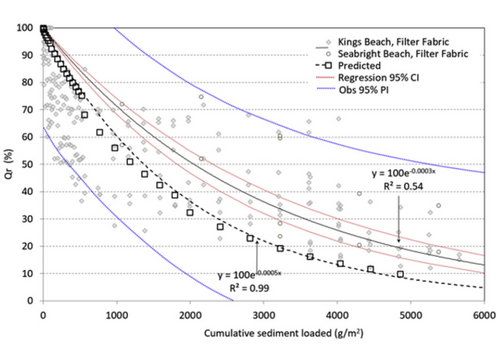Published in Computers, Environment and Urban Systems
Abstract
Urban stormwater runoff is among the most significant sources of trash delivery to waterways, degrading aquatic habitats and contributing to oceanic trash gyres across the globe. Municipal water quality permits that require elimination of trash inputs to stormwater systems employ visual trash assessments on city streets to demonstrate litter reduction progress. We present a novel method to increase the utility of these assessments by quantifying their degree of certainty at a granular spatial scale via Bayesian credibility intervals. Using data collected in the City of Salinas, California, we illustrate how the outputs can be used to determine effective trash controls and prioritize areas for management actions. Spatial dependence was incorporated to the uncertainty estimates within individual stormwater drainages and results were interpolated to adjacent parcels. After 3–6 observation periods over 20 months, we found approximately 30% of the city area showed minimal litter accumulation at an 80% certainty level. The outputs provide a practical alternative for cities to determine compliance with stormwater trash regulations, update understanding of trash accumulation patterns, and iteratively adjust sampling designs in response to new observations. The methods described have been implemented as a web-based geospatial decision support tool to help stormwater managers target implementation actions and report progress to regulators.
Download PDF

